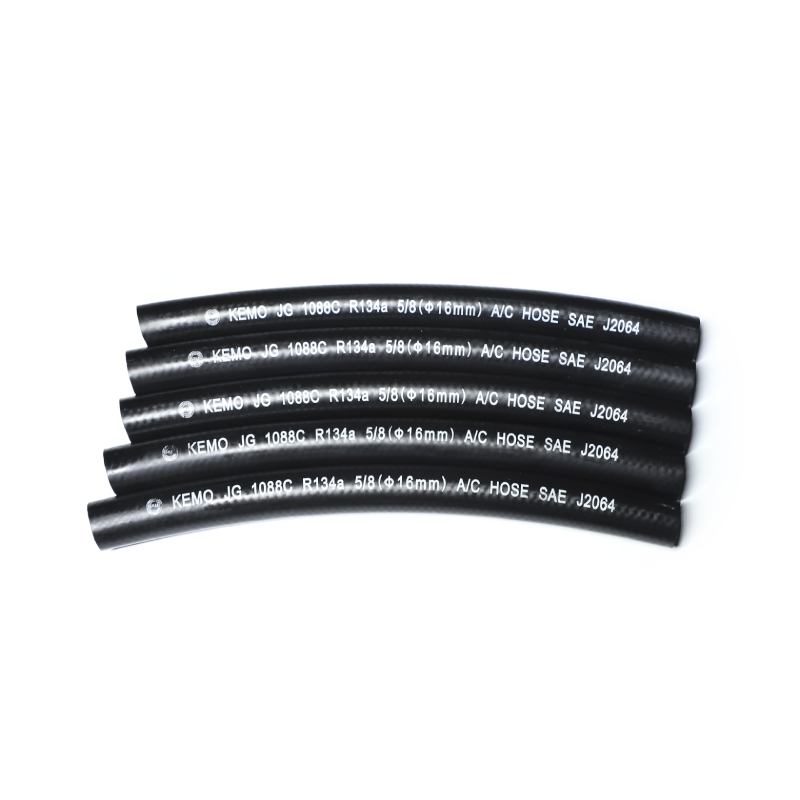diesel injector return hose
Dec . 30, 2024 08:15 Back to list
diesel injector return hose
Understanding Diesel Injector Return Hoses
Diesel engine systems rely on a finely tuned assembly of components to ensure efficient operation. One of these critical components is the diesel injector return hose. Understanding the function, design, and maintenance of diesel injector return hoses is crucial for any diesel vehicle owner or mechanic to ensure optimal engine performance and longevity.
What is a Diesel Injector Return Hose?
A diesel injector return hose is a flexible tube that connects the diesel injectors to the fuel return system of a diesel engine. When fuel is injected into the combustion chamber, a certain amount of it doesn’t get used for combustion and thus returns to the fuel tank through the return system. The return hose facilitates this process by channeling excess fuel away from the injectors, preventing any buildup that could lead to pressure issues or injector malfunction.
The Function of the Injector Return Hose
The primary function of the diesel injector return hose is to manage fuel flow effectively. Diesel injectors are designed to operate within specific pressure and temperature ranges. Anomalies in these conditions can lead to inefficiencies such as fuel leakage, poor injection quality, and even engine knocking. By channeling excess fuel back to the tank, the return hose helps maintain optimal pressure levels, ensuring that the injectors deliver the right amount of fuel for efficient combustion.
Moreover, the injector return hose is integral to the overall fuel management system. It helps with balancing the fuel rail pressure and allows for the proper operation of the fuel pump. If the return hose is compromised, it can lead to fuel starvation or over-pressurization, both of which can severely damage the engine.
Design Considerations
Diesel injector return hoses are typically made from durable materials capable of withstanding the harsh conditions present in a diesel engine environment. These materials include rubber, reinforced synthetic polymers, and sometimes metal or composite materials for added strength.
The hose must also be designed to handle high pressure and resist degradation from exposure to fuels and oils. Additionally, its diameter and length are tailored to the specifications of the vehicle’s fuel system, ensuring seamless integration and efficient fuel flow.
Signs of Wear or Damage
diesel injector return hose

Routine maintenance checks on diesel injector return hoses can prevent serious engine issues. Signs of a failing return hose include
1. Fuel Leaks Visible signs of diesel fuel pooling under the vehicle or around the injector rail are a strong indicator of an issue with the return hose. 2. Reduced Engine Performance A drop in power, poor acceleration, or stalling may signal that the injectors are not receiving the right pressure due to a malfunctioning return hose. 3. Abnormal Engine Sounds Unusual noises such as knocking or popping can occur if there’s an imbalance in fuel pressure.
4. Warning Lights Many modern vehicles feature onboard diagnostic systems that may trigger warning lights if they detect issues in the fuel system, which could be related to the return hose.
Maintenance Tips
To ensure the longevity and efficiency of the diesel injector return hose, follow these maintenance tips
- Regular Inspections Include the return hose in routine engine checks, looking for signs of wear, cracks, or leaks. - Replace When Needed If any wear or damage is detected, replace the hose immediately to prevent more extensive engine damage.
- Use Quality Parts When replacing the return hose, opt for high-quality components that meet or exceed OEM specifications to ensure durability and reliability.
- Monitor Engine Performance Keep an eye on how the engine runs. Any sudden changes may indicate that the fuel system—potentially including the return hose—needs attention.
Conclusion
The diesel injector return hose may be a small component within the vast engine system, but its role is vital for optimal performance and efficiency of diesel engines. By understanding its function, design, and signs of wear, diesel vehicle owners can take proactive measures to prolong engine life and maintain excellent performance. Regular maintenance and timely replacement are key to ensuring that your diesel engine runs smoothly for years to come.
